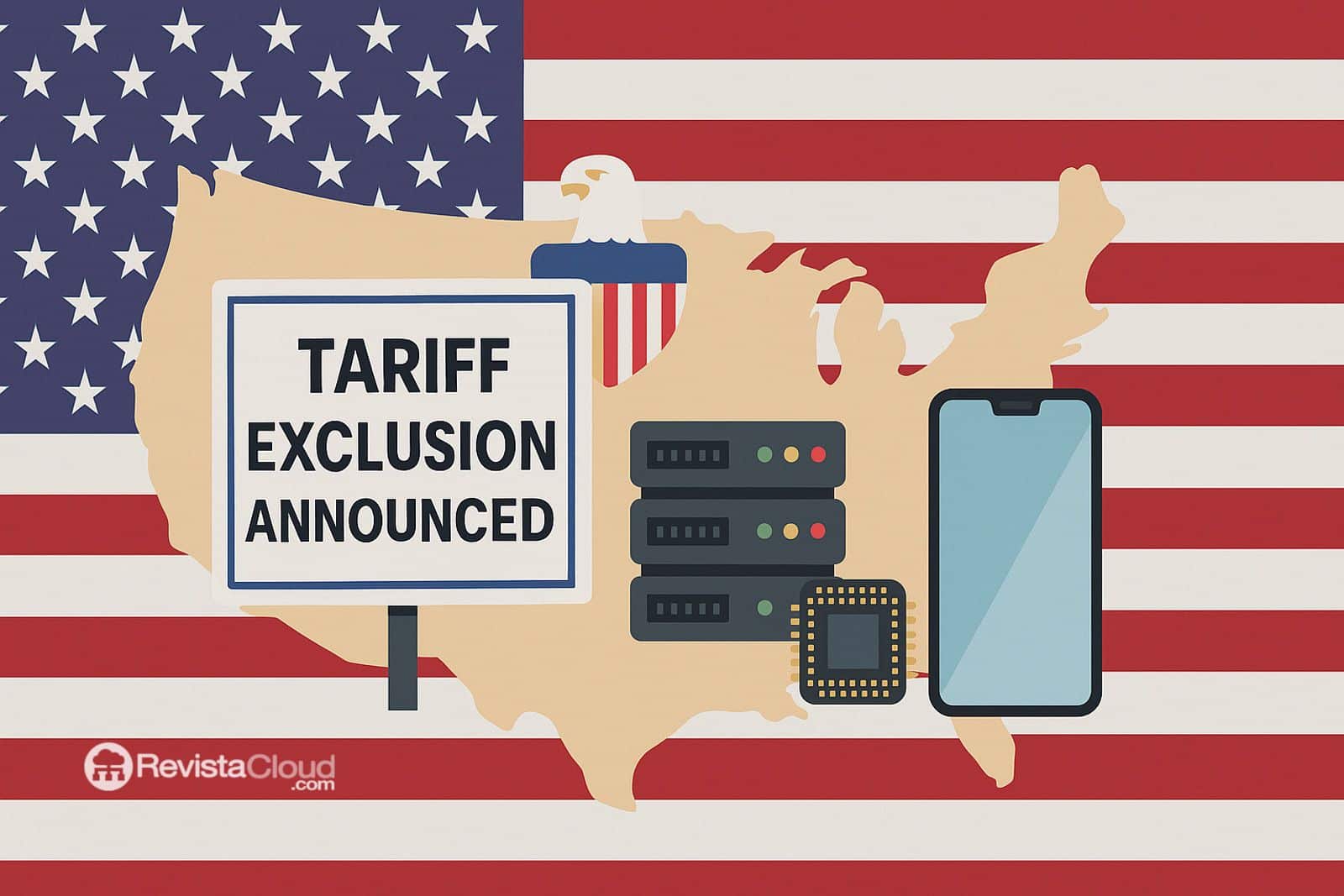The measure, effective April 5, excludes a wide range of electronic devices and strategic components from reciprocal tariffs.
The United States has decided to temporarily exclude a significant list of technology products from reciprocal tariffs in response to measures imposed under Executive Order 14257 and its subsequent amendments. This measure, communicated by the Customs and Border Protection (CBP) of the Department of Homeland Security, came into effect on April 5, 2025, and aims to reduce the economic impact on key sectors of the U.S. technology industry.
This tariff exclusion affects imports classified under the U.S. Harmonized Tariff Schedule (HTSUS) under codes that range from servers, laptops, and smartphones to semiconductors, storage devices, optical components, and chip manufacturing equipment.
Products Excluded from Tariffs
The resolution specifically includes the following groups of products:
| Category | HTSUS Classification | Description |
|---|---|---|
| Computers and Related Equipment | 8471, 8473.30 | Desktop computers, laptops, servers, hard drives, motherboards |
| Chip Manufacturing Equipment | 8486 | Wafer fabrication machines, lithography systems, etching tools |
| Communication Devices | 8517.13.00, 8517.62.00 | Smartphones, modems, routers, switches, signal converters |
| Data Storage | 8523.51.00 | SSD drives, USBs, memory cards |
| Monitors and Displays | 8528.52.00 | Computer monitors and projectors (not televisions) |
| Digital Media | 8524 | CDs, DVDs, Blu-rays, and other recorded media |
| Semiconductor Components | 8541.10.00 to 8541.90.00 | Diodes, transistors, LED chips, sensors, and parts for chip manufacturing |
| Integrated Circuits | 8542 | Microprocessors, RAM/ROM, microcontrollers, SoCs |
Declaration and Refund
Importers must declare the exception using the secondary subheading 9903.01.32 when entering merchandise. For products that have already been cleared since April 5, corrections to the declaration are allowed within 10 days after the release of the cargo. If tariffs have been paid, a refund can be requested through a post-summary correction or, if finalized, through a protest before the expiration of the relevant period.
This measure aims to alleviate U.S. technology companies from the additional costs incurred by tariffs imposed during recent trade tensions. The administration has also indicated that it will continue to provide updated guidance through the CSMS system.
A Temporary Breather
Although the measure does not eliminate tariffs permanently, it provides relief for U.S. manufacturers, distributors, and developers who rely on critical components manufactured abroad, particularly in China. Companies in the technology sector had expressed concerns over rising costs and project delays due to trade restrictions.
According to the official CBP bulletin (CSMS #64724565), this policy responds to the need to adjust tariffs reciprocally, also considering retaliatory measures from trading partners, with the aim of protecting U.S. interests without stifling technological competitiveness.
References: Reddit and U.S. Border and Custom Protection.
Free illustration from AI free images.

